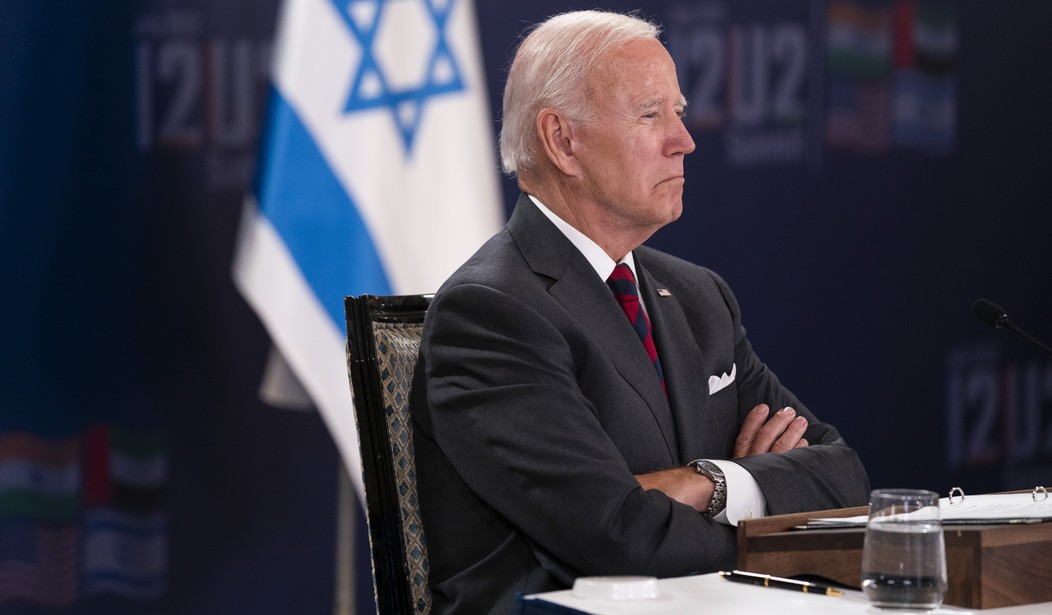Earlier this week, Palestinian Authority President Mahmoud Abbas and Hamas leader Ismail Haniyeh met for the first time since 2016 while both were in Algiers. However, reconciliation between the competing factions is less likely than ever following a month of tensions, during which Fatah accused Hamas of seeking to seize the West Bank by force.
Fatah levelled those accusations after PA security forces thwarted an attempt by Hamas to blow up a security installation in the West Bank. The security forces discovered several kilograms of explosives in an underground weapons cache near the small town of Beintunia, outside Ramallah. According to PA sources, an inadvertent explosion led PA security forces to uncover the alleged plot which included plans to strike the PA headquarters. The attempted attack is a clear indication of Hamas’s desire to take over the West Bank and establish yet another Iran-backed regime to threaten the Jewish State.
The thwarted attack came as new rumors were circulating that the aged and ailing PA president may finally have been preparing to step down, ending his 17-year rule. Abbas has already overstayed his term by 13 years, and (rumors aside) it is unclear whether he intends to willingly retire anytime soon. What is certain is that Abbas’s departure will lead to a contested and potentially bloody succession battle. The foiled attack on PA headquarters signals Hamas’ readiness to exploit instability in the West Bank and potentially establish its control there.
It was no coincidence that the failed Hamas strike coincided with the fifteenth anniversary of a similar strike in Gaza that marked a turning point in the Hamas-PA civil war that ended with Hamas in control of the enclave. The war resulted in hundreds of Palestinian casualties, including deaths caused by tossing adversaries from the roofs of 15-story buildings, and deliberate gunshots to the kneecaps of prisoners, crippling the victims for life. Since Hamas’s 2007 takeover in Gaza, the Iran-backed terror organization has fired thousands of rockets at Israeli civilians, launched four major conflicts, and perpetrated cross-border abductions of Israeli soldiers.
Recommended
Israel has kept a lid on the threat from Gaza, sealing it off via stringent military blockade, close cooperation with Egypt to keep the borders secure, employing an advanced missile defense system to protect against rockets, and a high-tech security barrier to prevent Hamas from digging terror tunnels into Israel. However, the prospect of a similar terror threat along Israel’s boundary with the West Bank – a somewhat porous and winding 700-kilometer barrier – should be extremely troubling for Israel, since it cannot countenance an Iranian backed terror organization within easy rocket range of Israel’s population center, international airport, and major infrastructure.
The thwarted June attack should also serve as a wakeup call to Mahmoud Abbas, who has not done nearly enough to cultivate a credible successor. Recent polling indicates Abbas’s approval rate in the West Bank hovers below 30%, while over 70% of respondents want him to resign. Abbas’s tendency to consolidate power and inability (or resistance) to appointing an heir apparent has led to the dire leadership crisis the PA faces today. Meanwhile, Hamas, at Iran’s urging, continues to strengthen its networks and capabilities in the West Bank.
As a result of this leadership crisis, and a prevailing sense of insecurity in the West Bank, the territory has seen a troubling uptick in arms proliferation and resulting violence, as families and clans prepare for the chaos that will ensue when Abbas either steps down or is incapacitated. So much so, that in 2020, a Palestinian human rights organization issued a warning about an ongoing arms race in the West Bank.
Since at least 2014, it has been Iranian Supreme Leader Ayatollah Khamenei’s stated policy to arm the West Bank “just like Gaza”. Iranian Revolutionary Guards Corps chief, Hossein Salami reiterated the policy shortly after. Furthermore, in 2019 Iran-aligned Arab journalist Mohammad Sadeq Al-Hosseini announced that Iran is arming Palestinians in Gaza, the West Bank, and also Israeli Arabs within Israel’s 1948 borders.
While it’s not clear how successful Iran’s policy of arming the West Bank has been, Iran has successfully flooded Israel with arms via Hizballah smuggling routes in southern Lebanon. The deluge of weapons has resulted in an escalation of gun violence within the Arab Israeli community, including assassinations related to organized crime, and murder.
During President Joe Biden’s upcoming visit to Israel and the West Bank, he should make clear that Abbas is not doing enough to ensure stability when he eventually steps down. Despite all sides’ many grievances and the enduring stalemate in Israeli-Palestinian negotiations, the U.S., PA, and Israelis must make a colossal and coordinated effort to crush the illicit networks that finance arms transfers and maintain the smuggling routes that Hamas relies on. Failure to do so may result in an Iran-backed terrorist regime along Israel’s eastern flank, waiting for an opportunity to strike.
Enia Krivine is the senior director of the Israel Program and the FDD National Security Network at the Foundation for Defense of Democracies. Follow Enia on Twitter at @EKrivine.

























Join the conversation as a VIP Member